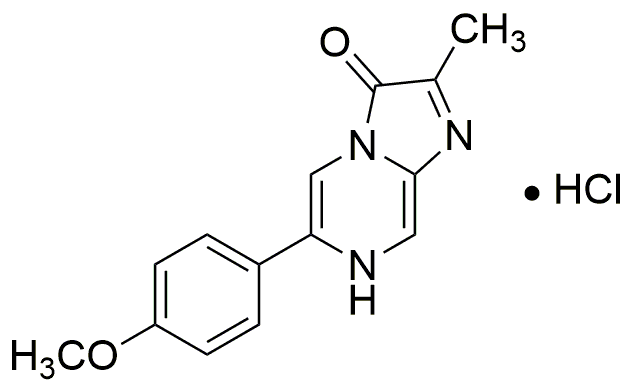MCLA is widely utilized in research focused on:
- Pharmaceutical Development: MCLA serves as a key intermediate in the synthesis of various pharmaceutical compounds, particularly in the development of anti-cancer agents. Its unique structure allows for the modification of drug properties to enhance efficacy.
- Biochemical Research: This compound is used in studies investigating enzyme inhibition and receptor interactions, providing insights into metabolic pathways and potential therapeutic targets.
- Material Science: MCLA is explored for its potential in creating advanced materials, such as polymers and coatings, due to its chemical stability and reactivity, which can improve material performance.
- Agricultural Chemistry: Researchers are investigating MCLA's potential as a pesticide or herbicide, leveraging its chemical properties to develop safer and more effective agricultural solutions.
- Analytical Chemistry: MCLA is employed as a standard in various analytical techniques, aiding in the detection and quantification of related compounds in complex mixtures, which is crucial for quality control in manufacturing.
General Information
Properties
Safety and Regulations
Applications
MCLA is widely utilized in research focused on:
- Pharmaceutical Development: MCLA serves as a key intermediate in the synthesis of various pharmaceutical compounds, particularly in the development of anti-cancer agents. Its unique structure allows for the modification of drug properties to enhance efficacy.
- Biochemical Research: This compound is used in studies investigating enzyme inhibition and receptor interactions, providing insights into metabolic pathways and potential therapeutic targets.
- Material Science: MCLA is explored for its potential in creating advanced materials, such as polymers and coatings, due to its chemical stability and reactivity, which can improve material performance.
- Agricultural Chemistry: Researchers are investigating MCLA's potential as a pesticide or herbicide, leveraging its chemical properties to develop safer and more effective agricultural solutions.
- Analytical Chemistry: MCLA is employed as a standard in various analytical techniques, aiding in the detection and quantification of related compounds in complex mixtures, which is crucial for quality control in manufacturing.
Documents
Safety Data Sheets (SDS)
The SDS provides comprehensive safety information on handling, storage, and disposal of the product.
Product Specification (PS)
The PS provides a comprehensive breakdown of the product’s properties, including chemical composition, physical state, purity, and storage requirements. It also details acceptable quality ranges and the product's intended applications.
Certificates of Analysis (COA)
Search for Certificates of Analysis (COA) by entering the products Lot Number. Lot and Batch Numbers can be found on a product’s label following the words ‘Lot’ or ‘Batch’.
*Catalog Number
*Lot Number
Certificates Of Origin (COO)
This COO confirms the country where the product was manufactured, and also details the materials and components used in it and whether it is derived from natural, synthetic, or other specific sources. This certificate may be required for customs, trade, and regulatory compliance.
*Catalog Number
*Lot Number
Safety Data Sheets (SDS)
The SDS provides comprehensive safety information on handling, storage, and disposal of the product.
DownloadProduct Specification (PS)
The PS provides a comprehensive breakdown of the product’s properties, including chemical composition, physical state, purity, and storage requirements. It also details acceptable quality ranges and the product's intended applications.
DownloadCertificates of Analysis (COA)
Search for Certificates of Analysis (COA) by entering the products Lot Number. Lot and Batch Numbers can be found on a product’s label following the words ‘Lot’ or ‘Batch’.
*Catalog Number
*Lot Number
Certificates Of Origin (COO)
This COO confirms the country where the product was manufactured, and also details the materials and components used in it and whether it is derived from natural, synthetic, or other specific sources. This certificate may be required for customs, trade, and regulatory compliance.


